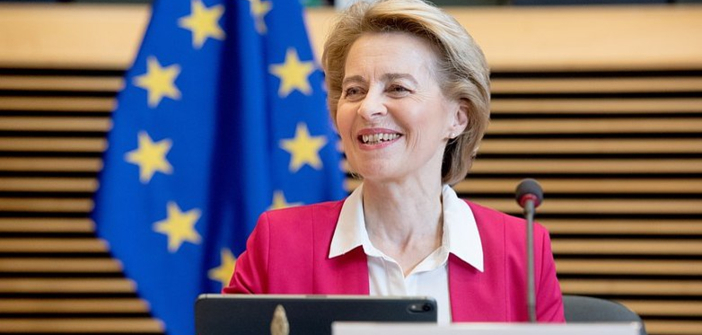The recovery fund is €750 billion, as proposed by the European Commission this Wednesday after long weeks of back-and-forth. The European executive has also proposed that the new instrument, which will now be negotiated among the Twenty-Seven, distributes €500 billion in grants and €250 billion in loans. This is a historic step in European integration.
The President of the European Commission presented the European Commission’s proposal to strengthen the EU budget through the new Recovery Fund to the European Parliament in plenary session.
The new Recovery Fund, and this is the historic novelty, will be financed by European Commission bonds. The bonds will have different maturities, but the commitment is to repay them by 2058, but not before 2028. The aim is to benefit from the entire yield curve, with a maximum maturity of 30 years.
Brussels proposes to the Twenty-Seven to repay the debt with an increase in own resources (digital tax and carbon tax among the hypotheses).
Until now, the European Commission has issued debt for specific objectives and very limited amounts (which tends to help the balance of payments of countries outside the euro zone).
With this proposal, the prospects of the European Union are changing. Significant financing powers are entrusted to the EU executive, powers until now limited to two financial institutions with specific objectives: the European Investment Bank and the European Stability Mechanism.
Confirming the information released in recent weeks, the new Recovery Fund will rely on three pillars, respectively dedicated to supporting member countries, reviving the economy, and strengthening existing programs.
The community proposal is more generous than the Franco-German hypothesis of a few days ago. Together, Berlin and Paris had proposed a fund of €500 billion, all in grants.
The Recovery Fund, entirely dedicated to the economic crisis caused by the pandemic, will be associated with the community budget for the next seven years. According to the proposal presented to the European Parliament by the President of the European Commission, Ursula von der Leyen, the new European financing for the period 2021-2027 should have a value of €1,100 billion, slightly modified from the pre-pandemic proposal.
Regarding the operation of the Fund, the Commission proposes that the money be used to modernize the economy, not just to restart it. Therefore, priority will be given to digital and environmental aspects.
The new budget plan will have to be negotiated by the Twenty-Seven and approved by the European Parliament. A European summit is already scheduled for June 18-19; diplomats in Brussels are already anticipating another summit in July as the negotiation is likely to be complicated.


